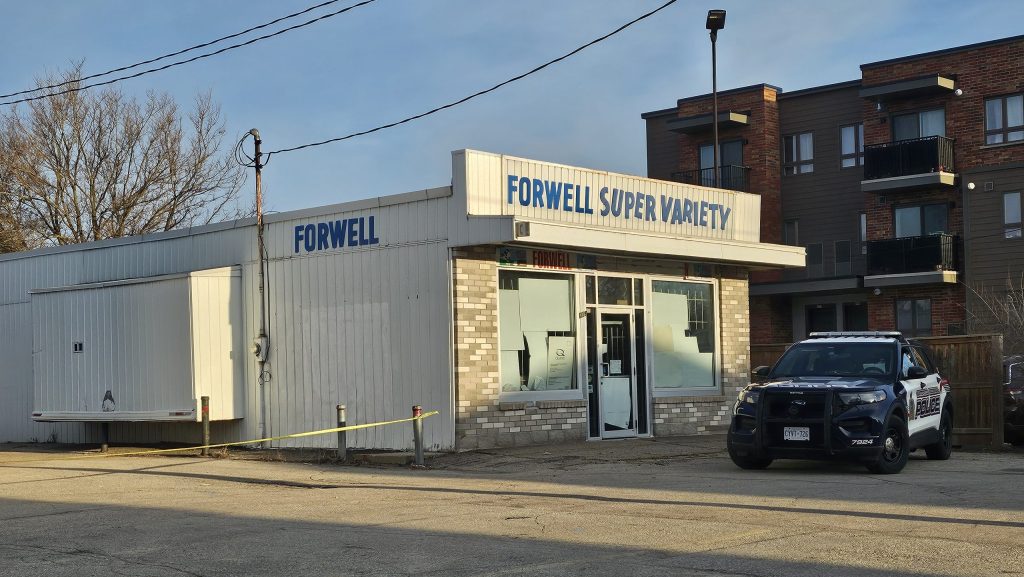The Raw Carrot providing purpose to people with disabilities and mental illness
Posted May 27, 2020 04:45:00 PM.
At first glance, a bowl of soup seems simple. But underneath the surface, there’s depth, character and personality. The Raw Carrot is a soup enterprise aiming to change the way people look at soup, and chefs behind the dish.
Soup is the finished by-product that leaves their kitchen, but the true goal of the business is to give people with disabilities and mental illness a place to work. Since launching its first location in Paris in 2014, The Raw Carrot has expanded to four permanent locations.
Rebecca Sherbino is the co-founder of The Raw Carrot and along with co-founder Colleen Graham, they’re giving purpose and employment for community members who might not otherwise find a job.
“The reason was a real personal one to us,” Sherbino said. “We knew some people who were struggling that had disabilities and or a mental illness, and they were struggling to make ends meet each month. When somebody has the desire to work, it’s pretty frustrating that they can’t. And they can’t give themselves a hand up in life when they can’t access a job in life. That was the impetus to us starting the whole venture, initially.”
Having lived in Africa for five years and working in development and the charity sector, Sherbino witnessed many band-aid solutions for those living in poverty. She wanted to create a transitional step to help people who were reaching out to a food bank for assistance, to take the next step by earning an income and living independently.
The Raw Carrot partnered with local churches and the congregations donated their commercial kitchen space to the company to prepare and cook their soups. The churches act not only as a central kitchen for cooking the soups, but it’s also a distribution centre for the products.
“We couldn’t run this venture on the margins that we have, also requiring us to pay for commercial kitchen space,” Sherbino said. “We run on a break-even model because of all the effort we’re putting into this to have a social impact. We’re working to make ends meet, but we’re working to give people work.”
Last fall, The Raw Carrot expanded beyond their church kitchens and landed shelf space in prominent local grocers like Sobeys, besides retailers like Farm Boy and Foodland. While it was a challenge at first to win over some of those grocers, they understood The Raw Carrot’s mission and shared the same vision.
“They’ve been great because when we explain the story to them, they really understand that by carrying our product, they are literally supporting somebody’s local job,” Sherbino said.
Many of the employees receive funding from the Ontario Disability Support Program, but even with that assistance, it leaves them little room to make ends meet. One employee said they couldn’t afford to buy groceries every month if it weren’t for earning a paycheque at The Raw Carrot.
One of Sherbino’s visions for the soup enterprise was to help people with disabilities and mental illness do more than merely get by, but to thrive in society. The Raw Carrot provides them with meaningful work and an opportunity to earn a living.
“We felt strongly that people have the potential to thrive when they’re given that right opportunity,” Sherbino said. “We believe that the human potential is there and we should realize it. Them having the purpose and the dignity of a job is worth it. They are worth it.”
In response to the COVID pandemic, The Raw Carrot has altered the way they do business. As a producer of food, they qualify as an essential service in Ontario. Their online store is now operational and people can order soups for curbside pickup, or delivery within certain areas.
Soup is the catalyst behind the business, but it’s the people who are most important at The Raw Carrot. What started with only four employees has grown to four locations and 27 employees.
“We just have a huge desire to offer this to more people. We didn’t know that initially,” Sherbino said. “We just started this as a side hustle, but then we realized it actually was working. People were earning an income, and it was really significant in their lives. That desire to grow has been because we’ve seen the change that a job makes to somebody.”








